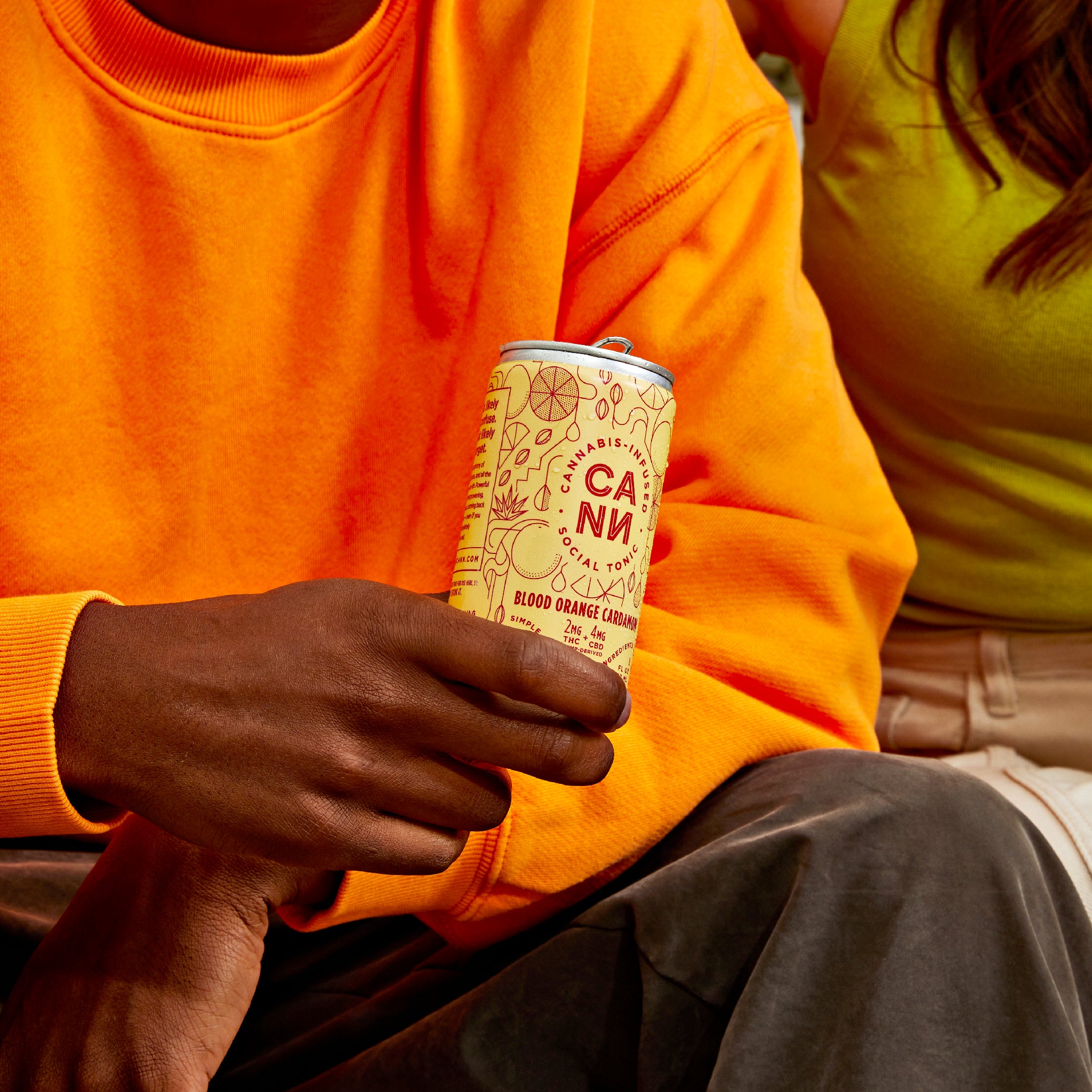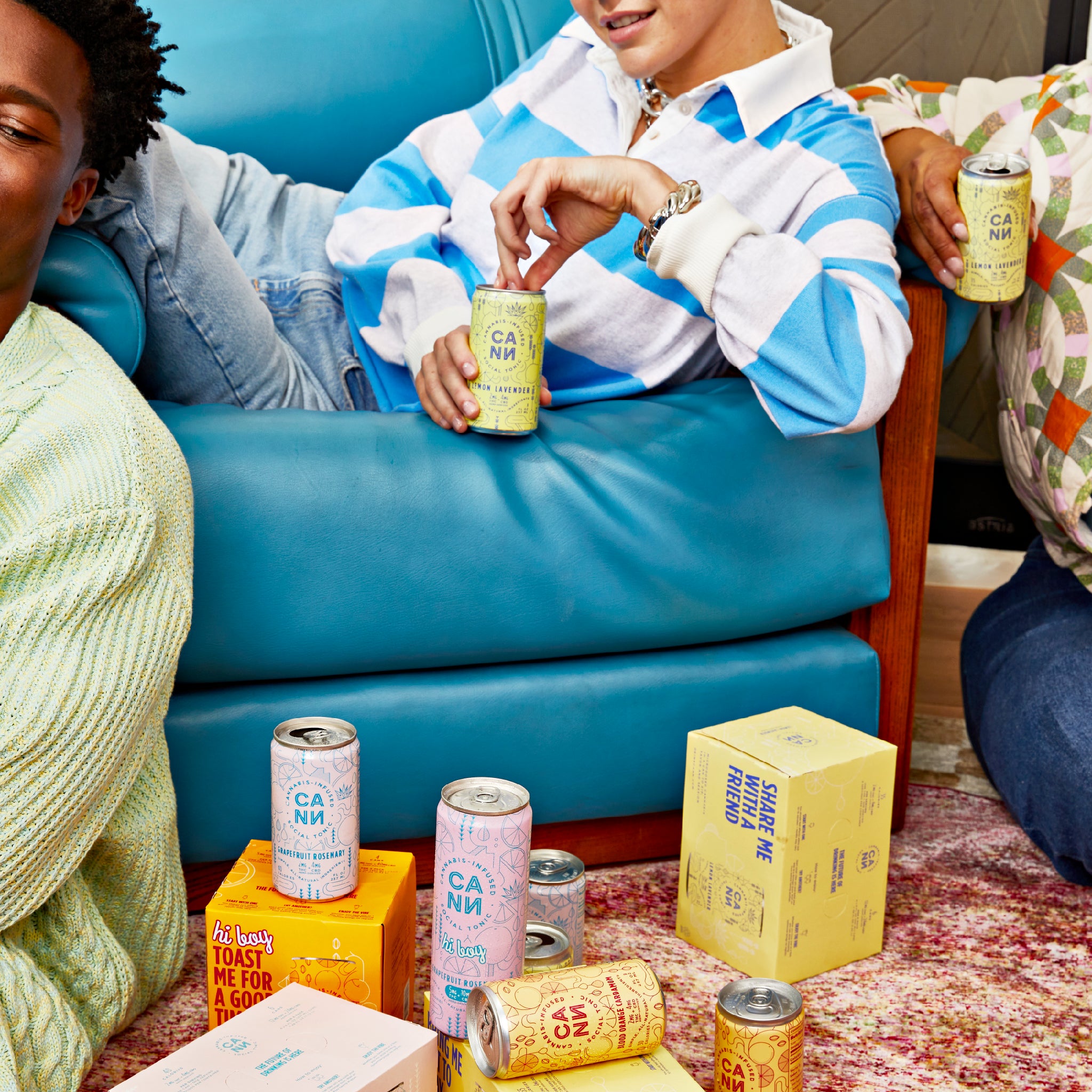An Open Letter to Congress on Low Dose, Hemp THC Beverages
TLDR: Definitely not a whitepaper, just our musings to federal lawmakers.

Drinks infused with THC are popping up everywhere from your local corner store to the biggest liquor store chains in the country, which begs the question, how should this emerging industry be regulated? For policymakers in Congress that care about making good policy, we have an answer.
Some quick history. In 2018 the Farm Bill removed hemp from the controlled substances list, making way for hemp infused drinks if the THC content is below 0.3% by dry weight, which is the legal definition of hemp. Typically, the FDA would provide consumer product regulations for these new products, but they have not, and so, many states have stepped in to regulate these drinks.
Surprisingly, the states with hemp regulations have done a pretty good job. The best ones focus their policy on 1) age verification that limits products to those 21 years and older, 2) caps on the potency of THC, and 3) guidelines for clear labeling and testing.
But some important questions remain:
- Shouldn’t these products only be sold in dispensaries, especially if the THC content of a single drink is the same?
- We already have trouble in society from alcohol and nicotine, why add another intoxicant to the mix?
- I read an article that linked teen cannabis use to mental health issues, is that true?
- The Farm Bill did not intend to legalize intoxicating cannabinoids like THC; shouldn’t we close this “loophole”?
- What about drinking and driving on THC drinks or mixing them with alcohol? Isn’t that dangerous?
Let’s take them in turn.
Shouldn’t these products be sold in dispensaries only, especially if the THC content of a single drink is similar / the same?
A dispensary is like behind-the-counter at a pharmacy. It’s where folks go to get the heavy meds that only your doctor can prescribe. Microdosed THC drinks are more like the over-the-counter, lower strength products you can buy without a prescription. That’s where a low dose beverage like Cann is best suited for because these drinks are more like a beer – actually a single Cann is less intoxicating than a single beer. To put a finer point on it, the average dispensary patron is walking out of the shop with hundreds of milligrams (in some cases thousands of milligrams of THC) whereas the average hemp THC drinker is walking out of the shop with 10-20 milligrams. Regulators should focus on controlling the total amount of THC that can be bought in a store at once, not the amount in a single drink. Said differently, 100 MG THC should be sold in dispensaries, but a 6 or 12 pack of Cann makes sense in responsible retail environments alongside beer and hard seltzers.
Remember, hemp THC drinks are less intoxicating than other form factors; they require the drinker to consume the entire amount of liquid in order to get the whole dose. Also, increased absorption allows the body to process THC in liquid much faster than in edibles, meaning you won’t be gobsmacked or feel trapped by its effect.
We already have trouble in society from alcohol and nicotine, why add another intoxicant to deal with?
THC is milder than alcohol and significantly less addictive than nicotine. Sadly, adults will die from alcohol overdoses each day, where no one will die from a THC overdose. Hemp THC drinks are also one of the best ways to get consumers to drink less booze. Cann’s best customers are alcohol drinkers that are frustrated with how much they drink and its effect. They use Cann to reduce their alcohol consumption, often very dramatically.
I read an article that linked teen cannabis use to mental health issues, is that true?
Articles reporting on the science behind cannabis use and mental health make some fundamental mistakes. The first is they almost always rely on self-reported marijuana smoking data, which is not the same as drinking microdoses of THC and CBD. Smoking carries its own significant health risks and often involves very potent doses. Further, most studies demonstrate a correlation that is much more likely explained by young folks battling early signs of mental illness and self-medicating with marijuana. When marijuana isn’t effective, they move on to stronger substances, many of which can exacerbate a brain illness. While we do not recommend anyone under 21 years old consume Cann or THC products, the risk with microdosed THC drinks is substantially lower given the mild amount of THC and the slower consumption method.
This is an important issue that we plan to address in detail in a separate post.
The Farm Bill did not intend to legalize intoxicating cannabinoids like THC, shouldn’t we close this “loophole”?
Removing hemp from the Controlled Substances Act was designed to help farmers, and it is doing exactly that. The government paid tobacco farmers across the US to replace their tobacco crops with hemp crops. Farmers rely on the full-spectrum (CBD and THC) extract market to make their businesses financially viable. Banning hemp THC would end hemp farming, full stop.
Additionally, the increase in demand for hemp products has had positive impacts on rural manufacturing and distribution jobs and is revitalizing struggling craft beer industries in a number of states. This is on full display in Minnesota, where craft beer facilities are making and distributing the bulk of the products in the state.
Also, in low amounts, hemp THC is not intoxicating and is much less impairing than alcohol. Because alcohol is both intoxicating and impairing, people often confuse the two. For example, I might feel the effects of a strong cup of coffee in the morning, but I can still operate a motor vehicle. Its intoxicating effect does not impair my motor skills. Robust science research provided to Congress by the hemp industry this summer indicates that 5MG of hemp THC is not intoxicating. Cognitive studies comparing the effects of alcohol and THC indicate that one beer is about as impairing as 3-4 2MG Canns.
While likely unintentional, the federal government has not created a loophole, but rather backed into a really good policy approach. A hemp pathway for the lowest risk, lowest potency hemp products, supports robust farming and rural jobs across the US, while giving consumers the choice to drink less booze. The negative effects of alcohol on public health and public safety cannot be overstated. Consumers need this option, and farmers do too.
What about drinking and driving on THC drinks or mixing them with alcohol? Isn’t that dangerous?
Consumers should not drive while consuming THC products. While they are safer and less intoxicating than alcohol, it is never a good idea to drink and drive. Mixing THC and alcohol is common, but to be clear, the dangerous part of that equation is the alcohol.
The bottom line is, these social beverages are some of the safest on the market, so they should be treated that way. Sell them only to adults 21+, cap the THC to 10 MG or below, ensure transparent testing and labeling accuracy.
